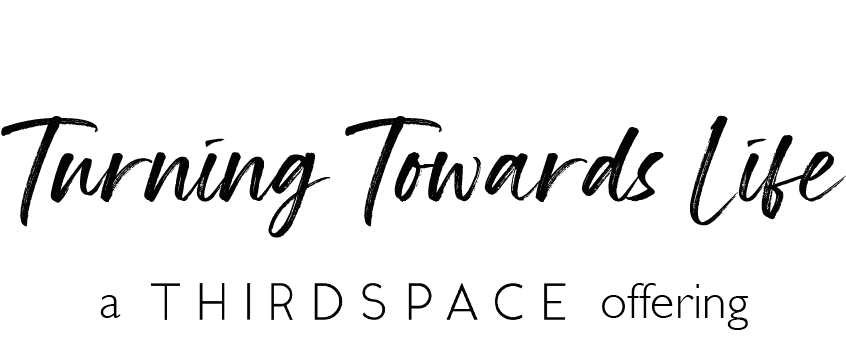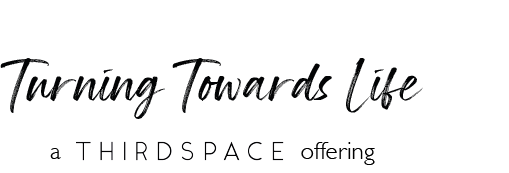Do You Want to Leave? Episode 145
Somewhere along the line, many of us learn that voicing our needs directly - asking people for what we want - is to invite ridicule, shame or otherwise ask to be hurt. Our learning to undo that - to find out what we really long for, and to give voice to it - is a necessary, difficult and life-giving path to taking up our full size and place in the world. And it's also absolutely necessary for a life of dignified, mutual relationships with others.
A conversation about discovering and speaking our truest longings to others - with Lizzie Winn and Justin Wise of Thirdspace.
This is Turning Towards Life, a weekly live 30 minute conversation hosted by Thirdspace in which Justin Wise and Lizzie Winn dive deep into big questions of human living. Find us on FaceBook to watch live and join in the lively conversation on this episode. We’re also on YouTube, and as a podcast on Apple, Google and Spotify. You can find videos of every episode, and more about the project on the Turning Towards Life website.
Our source for this week is chosen for us by Justin.
Do You Want to Leave?
Walls are worn away a grain at a time, and hearts are opened a feeling at a time. Susan and I were sitting in an ice cream parlor when the two couples next to us began to get loud. They were just having a good time, but I was feeling a bit inward and intruded on. I felt the need to go. I leaned over to Susan and asked if she wanted to leave. She, in her contentment, said, “No. I’m happy here.” Then seeing consternation on my face, she asked, “Do you want to go?” In that simple moment in a booth in an ice cream parlor, I realized that for much of my forty-nine years, I have tried to take care of my needs by indirectly projecting them on those around me and then acting as if I am taking care of the other person.
As the ice cream was melting, I understood myself. I laughed, shook my head, felt embarrassed, then sighed deeply, and importantly voiced the obvious, “Yes, I’d like to leave.” This indirect way of trying to get what I need by planting my feelings as needs to be attended to in those around me has been a way to hide my vulnerability, while still managing to appear as a kind and other-centered person. I realize I am not alone in this malady. It is often so subtle and so close to our healthy way of relating to others that we seldom realize the manipulation and deceit involved.
Of course, this indirectness lives in us because somewhere along the way, we become convinced, often with good harsh reason, that to voice directly what we need is asking to be hurt. Yet I know of no other way to reverse this hiding of who we are than to catch ourselves humbly in each instance and to rise out of our private cave, admitting the indirectness and saying what we feel and what we need as soon as possible. Still, the energy wasted in trying to quietly get others to behave in ways that will satisfy our needs remains a major source of anxiety and alienation.
Rather than prevent us from being hurt, indirectness and dishonesty only heighten our isolation from what it means to be alive. Underneath it all is the fundamental truth that as trees have leaves that are nicked and eaten, human beings have feelings that are just as worn by the act of living. We have a right to these. They are evidence of our human seasons."
– Mark Nepo, from "The Book of Awakening: Having the Life You Want By Being Present in the Life You Have"
Photo by Aron Visuals on Unsplash

